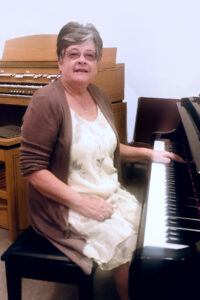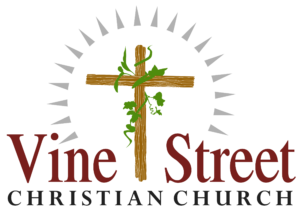Join Us Sunday Mornings
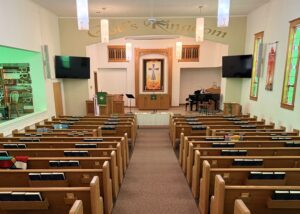
10 A.M. Worship
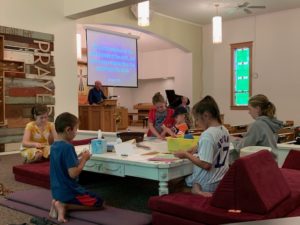
Teaching & Preachings
Genesis 1:26 says;
Then God said, “Let us make man in our image, after our likeness. And let them have dominion over the fish of the sea and over the birds of the heavens and over the livestock and over all the earth and over every creeping thing that creeps on the earth.”
Recent Devotionals
April 2020
Recent Posts

THE SACRED MEAL: “What’s it all about?”

Every Sunday, without fail, as we gather in our sanctuary for worship, we can be absolutely sure that at least one thing is going to happen: Communion! It’s the center of our service, and the capstone of our worship with God. It’s the most sacred part of any Disciples of Christ service … and the Communion Table is in the center of the Chancel in virtually every DOC church that exists. But sometimes rituals that are so important and repetitive can become routine. But this is for sure: there should be nothing routine about our Communion meal with Jesus. So, it’s fair to ask every now and then: What’s it all about, anyway? James Duke, author of “The Nature of the Church” written for the Disciples of Christ, explains that “The Lord’s Supper” allows us to be “made participants in the very life, the body and blood, of Christ and share in his presence.” Thus, Duke says that every time we take the meal, “we are in Communion with our Lord, with one another, and with all who are in Christ.” When we come to The Table of the Lord, he claims, we not only testify to our oneness in Christ, but we discover it all over again. It brings to reality the life in Christ each one of us shares. I like to think of Communion as God’s greatest gift to the church. And even though we do not own it, because it is so precious to God, we are all called to be stewards of it … which means that whenever we come to the Table, we should partake of the body and blood of Jesus in the sacred way they are meant to be shared. St. Augustine, the iconic Bishop of Hippo from the 4th century, included this invitation to Communion in one of his sermons to his congregation: “Be what you see; receive what you are!” Author Derek Olsen tells us that Augustine’s words to those gathered that day invites each of them to personally enact Christ’s victory of life and love. You see, it’s a progression of faith we are all called to: first, receive the bread and the cup; then, become the church (the body of Christ in the world today); and finally, be the consecrated faithful followers of Jesus – the disciples! In a sense, we come to “church” on Sunday to be the “Church” – the Body of Christ – in the world. We come to the Table to be fed with the required “food” that enables us to do just that – the body and the blood of Jesus. When we are fed, and filled, with Christ himself, then we can actually become Christ-like ourselves … and truly become the disciples He needs to do His work in the world today. So come … come to the Table … and be all that God created you to be.
Read more

LORD, TEACH US TO PRAY

<>< The 11th Chapter of the Gospel of Luke begins with the disciples asking Jesus to teach them to pray. <>< By now, they had been with Jesus long enough to know Him as a “man of prayer.” They would have witnessed Him in prayer in many different circumstances as they walked together across the holy land watching Him heal, and teach, and serve, and love. Indeed, Jesus himself was a walking talking answer to prayers for everyone He met … and still today, for all who meet Him. The disciples had seen the power that Jesus held and shared, and they had surely noticed the correlation between what Jesus was able to do and His time spent in prayer to His Father. They wanted what He had! So, of course they would finally ask Him one day, “Lord, teach us to pray…” (Luke 11:1) And Jesus did! He began by teaching them the “what” of prayer. This is the prayer we today call “The Lord’s Prayer.” Jesus taught them to begin by acknowledging the relationship you have with the source of the power you seek: “Father, hallowed be your name.” But the word for “Father” that Jesus uses is the most intimate and personal form, “Abba.” Begin by directing your prayer to the one who knows you best … and loves you most … your Creator … your true “Daddy.” Then pray for the coming of God’s Kingdom, for this is why Jesus came and this is your eternal calling … to be a part of the building of the Kingdom of God on earth. “Your kingdom come” is you pronouncing to God that all that is good and right and just in this world – in other words, all the things you should really pray for – come from the coming of God’s Kingdom. Next, Jesus teaches the disciples to pray for their daily sustenance. “Give us our daily bread” has a powerful double-meaning: the physical bread that sustains our strength in this world and the spiritual bread of eternal life that is the body of Christ in the world today. This “daily bread” double portion is all we need to do everything God will ever ask us to do. Desiring anything more than this becomes a distraction to the work of building the Kingdom. The one thing that Christ offers us that only He could, is to be forgiven of our sins and wiped clean by the blood of the lamb. But that offer of forgiveness must be received – and its reception in our hearts must be done in a way that leaves it all to God’s grace, and none of it to our efforts. And therein points out the need for prayer: for us to receive this grace-given gift requires God’s help, and then for us to share it with others in exactly the same way it was given to us, again requires God’s help. So, pray this, Jesus says: “forgive us our sins, as we forgive those who sin against us.” Jesus wants us to understand – we can only receive this forgiveness “as” (in the same way) we offer it to others. In closing, Jesus says to pray for protection from the temptations of life. Jesus came here to be “one of us”, and He experienced life and all its trials just as we do. He is the answer and the remedy for this life and all its struggles, challenges and hardships. He came, He confronted, and He conquered. And he offers us that same “way” of life here and now. So now, let us be as beggars and ask of God … let us be as seekers and search for God’s Kingdom … and let us become lost to this world, so that we may knock and open the door to a new one. All for the glory of God <>< Pastor Bob <><
Read more

THIS SUNDAY, ARE YOU “GOING TO CHURCH?” OR ARE YOU “COMING TO WORSHIP?”

<>< Have you ever asked yourself that question – Why am I going to church? <>< I just discovered a new book by Constance Cherry that I can’t stop reading … and absorbing! It’s called, “The Worship Architect,” and it attempts to lay out a “blueprint” for conducting worship services in the 21st century that are both biblically credible and allow for a personal spiritual encounter with God by those attending. We have been talking a lot lately about those very issues here at Vine Street. Our Worship Team meets every Tuesday morning and our main goal is to be led by the Holy Spirit in designing the week’s worship service, and not merely following our own personal preferences and biases. As Constance Cherry says, “worship is a God-instituted gift to the church” and should be, “above all … to God, with God, and for God” Therefore, the single most important purpose of worship planning is to “discover God’s expectations” for the church service. That is why our Worship Team talks a lot about the desires and needs of the Holy Spirit for our church service, and why we pray a lot to be led by the Holy Spirit. But I wonder about you. Why do you come to church? Perhaps you haven’t even thought about coming to church to worship. Many people don’t, you know. There are many good reasons for a person to come to church on Sunday other than to have a personal encounter with the living God. Here are some of the reasons for coming to church that Cherry cites in her book:
- To feel better
- To be with people whose company I enjoy
- To learn about Jesus
- To show which side I’m on
- To keep people from asking why I missed
- To sing my favorite old hymns
- To be inspired, taught, and challenged by the sermon
None of those are necessarily bad or wrong reasons to come to church. But do you really think that is why God has given us this great gift of worship each week, on the Lord’s day, in the Lord’s house? I agree with Cherry that going to church should be about having a personal spiritual experience with God. As she notes, that’s a whole lot different than just going to church. “Going to church” sounds more passive than “coming to worship.” Here is what Cherry says about worship – see if you feel the same way: “When I worship, I expose myself to the power of God without any personal control over the outcome. Sometimes it brings healing, peace, forgiveness, confrontation, or hope. Always it calls me to move beyond the farthest point I have yet reached, and pushed me into uncharted territories. Going to church is easy most days. Worship is another matter. It is an awesome thing to know oneself fallen into the hands of the living God.” So, this Sunday, when you wake up and start getting ready for church, ask yourself, “Am I going to church today, or am I coming to worship?” In peace & grace, Pastor <>< Bob
Read more
Meet Some Of Our Team


Send us a Message
Contact Info
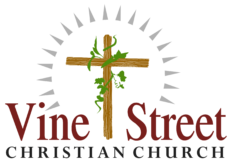
 Subscribe to sermon Podcast RSS
Subscribe to sermon Podcast RSS Subscribe to iTunes podcast
Subscribe to iTunes podcast

